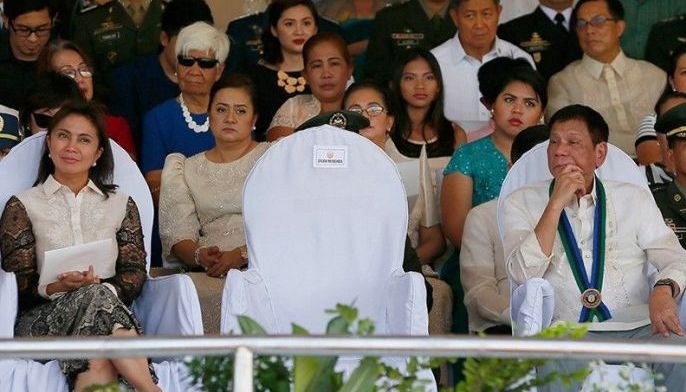MANILA, Philippines — A subcommittee of experts tasked with reviewing the 1987 Constitution wants tandem voting for the president and vice president under the proposed federal system, as well as for the vice president to be mandatorily given a Cabinet post.
In a press conference before Thursday’s en banc session, former Associate Justice Antonio Eduardo Nachura, a member of the Consultative Committee, said the proposals were “more or less” agreed upon at subcommittee level.
“One special feature is that both the president and vice president must belong to same political party so that a vote for the president is to be counted also as a vote for the teammate vice president,” Nachura said.
On making the vice president a member of the Cabinet, Nachura said the president will still have discretion in choosing which position to give to the second highest official of the land.
The current set-up does not compel the president to appoint the vice president to a Cabinet post. They can also be elected from different political parties, oftentimes causing conflict between the two top officials of the country.
The switch to a federal system was one of the key planks of President Rodrigo Duterte's election campaign, along with his deadly war on drugs.
In 2016, Vice President Leni Robredo, who belongs to the erstwhile ruling Liberal Party, briefly served as the country’s housing czar after she was told by Duterte to stop attending Cabinet meetings due to “irreconcilable differences.”
The subcommittee on the structure of the federal government, which is headed by Nachura, will present the draft articles of the legislative and the executive branches of federal government on Friday. For the judiciary, the articles are still being finalized.
Other proposals
Under the Con-Com subcommittee’s proposal, the president, vice president, senators and members of the House of Representative will enjoy a four-year term and will be entitled to one re-election.
Those aspiring to be elected to these posts are required to have a "college degree or equivalent" to be qualified.
Meanwhile, each federal region will have to elect two senators while the House of Representatives will be composed of district representatives.
Next week, the Con-Com will discuss the suggested revisions to provisions covering the judiciary, including Con-Com chairman and former Chief Justice Reynato Puno’s proposal to have three high courts, namely: the Supreme Court, a Constitutional Court and an Administrative High Tribunal.


